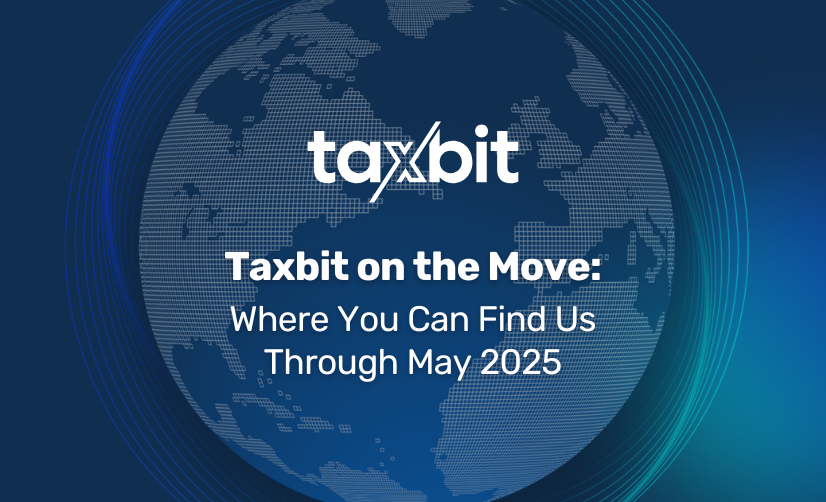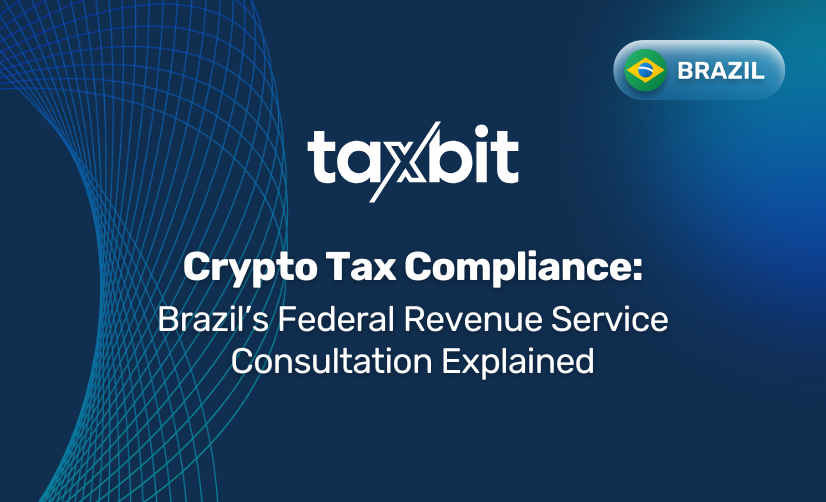Introducing Taxbit’s comprehensive tax ID verification solution to enable 100% IRS compliance for digital asset brokers
Regulatory changes are on the horizon for digital asset enterprises. In November 2021, Congress passed the Infrastructure Investment and Jobs Act (IIJA), which included several provisions specific to the regulation of “digital assets.”
Since then, many US-based centralized exchanges, decentralized exchanges, and NFT marketplaces have taken proactive steps to ensure they are ready to meet new regulations that will classify their enterprises as “digital assets brokers” once the law goes into effect January 1, 2023.
As that date approaches, Taxbit is working to provide enterprises with software solutions covering each of the provisions laid out in the IIJA. Taxbit has now launched a new Tax Identity Verification solution that helps exchanges and brokers collect required personal identifying information in the manner required by the IRS – commonly known as Forms W-9 or W-8.
The below article outlines details on the new Taxbit Tax Identity Verification solution, required data collection, processes, and most importantly how Taxbit is helping digital asset brokers and exchanges simplify the complex concept of crypto tax compliance.
Taxbit’s Tax Identity Verification Solution
The Taxbit Tax Identity Verification solution enables enterprises to easily embed the collection of Forms W-9 and W-8 within their existing onboarding experience. Data points collected during general Know Your Customer (KYC) onboarding are leveraged in populating and generating the Form W-9 or W-8 – ultimately creating a seamless user experience, and delivering an actual Form W-9 or W-8 to the enterprise.
The solution facilitates the determination of customers as US or Foreign, collects necessary static and personal information required for information reporting, automatically matches the TIN provided with the IRS TIN Matching Database, and helps to avoid backup withholding requirements.
Taxbit Tax Identity Verification enables clients to quickly and easily monitor which customers have a verified TIN, and which are not in their Taxbit Core Platform account dashboards. For any non-verified customers, brokers will be able to take immediate action to reconcile any incorrect or missing data.
Designed with the customer experience in mind, Taxbit Tax Identity Verification reduces friction in the new customer onboarding process with simple, intuitive data flows and provides brokers with an updated, organized data repository verified by the IRS for all customers in one location.
The stored information can be leveraged for a more seamless information reporting experience for brokers. Taxbit’s secure platform will help brokers by centralizing user data, transaction data, and other related data in connection with information reporting. Brokers will find significant cost savings and a much easier path toward full tax compliance.
IRS Regulatory Requirements
The IIJA extends existing traditional broker documentation requirements under IRC Section 6045 and Section 3406(d) to digital asset brokers. Operationally this is a significant shift in the manner in which information is collected by digital asset enterprises since collection of the IRS Form W-9 or W-8 (or allowable substitute form) is now required. The Form W-9 facilitates collection of a certified TIN for every broker customer.
This means that under “penalty of perjury”, broker customers will be required to provide their name, address, and a US Social Security Number (“SSN”) or Employer Identification Number (“EIN”).
Data collection is an often arduous and frustrating process for the enterprise and customer since it not only involves collection, but also it must be stored and verified by the broker to ensure accurate taxpayer information. The accuracy of the information collected is critical as it is often used for purposes of 1099 reporting with the IRS.
Backup Withholding
While it’s a significant benefit to exchanges and brokers to know each customer so as to provide personalized services and inform innovative new products, the biggest value to brokers in complying with new Tax Identity Verification regulations is the avoidance of time-consuming backup withholding activities and costly financial penalties.
If certified TIN’s are not collected prior to a broker facilitating a taxable transaction (generally a sale or trade of crypto asset), a broker will likely be required to apply backup withholding at 24% of gross proceeds paid. Brokers will also face potential backup withholding obligations if the certified TINs are not verified before the filing of the Forms 1099 each year.
Anyone who has received a “B Notice” from the IRS understands the manual efforts required to avoid steep penalties for Name and TIN mismatches filed on Forms 1099. As you can imagine, the resources and time required for brokers to set up and deploy a full backup withholding solution should not be taken lightly. To avoid backup withholding and penalties, all digital asset brokers will need a system in place to collect the required tax information, store it safely and securely, and verify all customer data with the IRS.
How Taxbit Can Help
Taxbit’s Tax Identity Verification solution is a great starting point for brokers looking to be proactive and get ahead of upcoming regulations. However, if you already have an existing Tax Identity Verification solution in place, Taxbit also offers brokers the Enterprise Tax Suite as a set of crypto tax compliance tools that covers every use case required under the IIJA. From Information Reporting to Cost Basis Interchange via the Taxbit Network, we can help your business achieve full regulatory compliance today.
To see the new Taxbit Tax Identity Verification solution in action, request a demo today








